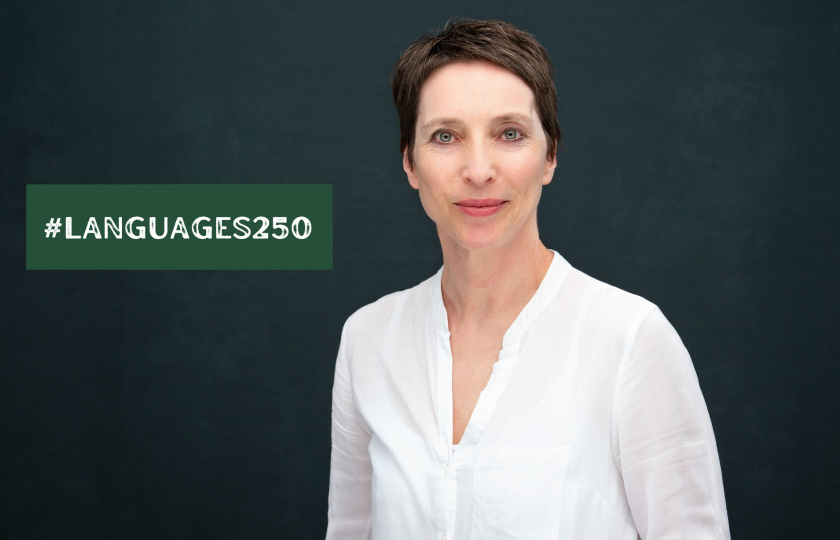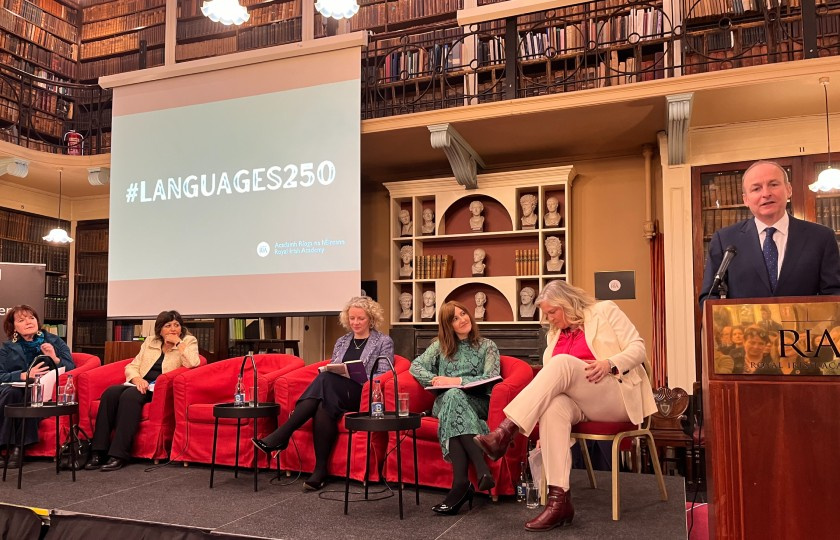
MIC lecturer, Dr Sabine Egger, is a member of a working group organising a number of landmark annual events to highlight the importance of Modern Languages as a discipline in Ireland—the third of which will be jointly hosted by MIC and UL in Limerick in 2025.
The Royal Irish Academy (RIA) hosted ’Towards 250 Years of Modern Languages at Third Level’ on 12 December with An Tánaiste, Micheál Martin, delivering the keynote speech. MIC staff including Dr Egger of the Department of German Studies and Dean of Arts, Prof. William Leahy, were in attendance, along with colleagues from universities across the country.
Ireland has the longest tradition of ‘institutionalised’ modern language teaching in academia in the world because the first university positions in French, German, Italian and Spanish were established in Trinity College Dublin in 1776 so leading academics have come together to mark and celebrate this 250-year legacy as we approach 2026.
According to Dr Egger: “The launch of ’Towards 250 Years of Modern Languages at Third Level’ – in short: #languages250 – is a key event, nationally and internationally, regarding Modern Languages and their importance for Ireland, both north and south. Modern Languages discussed on the day included Irish, German, French, Spanish, Portuguese, Polish and other ‘heritage’ languages of speakers with a migrant background. RIA Committee for Languages, Literature, Culture and Communication, I am delighted that colleagues from MIC joined the discussion with key decision-makers, such as Micheál Martin, Tánaiste, Minister for Foreign Affairs and Minister for Defence, or language rights activist Linda Ervine, and shared their expertise in this forum, representing MIC as a place of teaching, learning and research in Modern Languages."
She went on: “This opening event was kindly supported by MIC’s Faculty of Arts, Roinn na Gaeilge and the Irish Centre for Transnational Studies (ICTS). It will be the first of four annual events—followed by an event in Queen’s University Belfast in 2024, in Limerick in 2025 and in 2026 in Trinity College Dublin, where the first chairs were established 250 years ago. The Limerick event, co-hosted by MIC and UL, is supported by all Modern Language departments in MIC. It will take into account language learning at primary and secondary level in an international context, with migration as a key focus. We will be inviting contributions by researchers and practitioners closer to the date, and welcome expressions of interest at any point.”

The launch event in Dublin was designed to open up conversations around the value and significance of languages across a range of sectors, including education, business, technology, science, politics, peace-building, diplomacy and culture. It explored ways in which policy can support languages to overcome existing challenges and harness potential opportunities and emphasised why languages matter.
Topics and questions to be addressed at this and following events include: how can we enhance the offering and uptake of languages from early childhood years through to university and beyond? What might an all-Ireland languages strategy look like? How can we sustain and share best practice, also in view of migration and the increasing number of languages spoken in Ireland? How can languages be better supported in the Technological Universities and Further Education colleges? What do developments in Artificial Intelligence mean for the field? To what extent are languages integrated into the broader Irish academic landscape and discourse? How does this impact on Ireland in an increasingly transnational, European and global context?
Follow the initiative’s progress at the hashtag #languages250 and details of the Limerick event will be available in due course.



